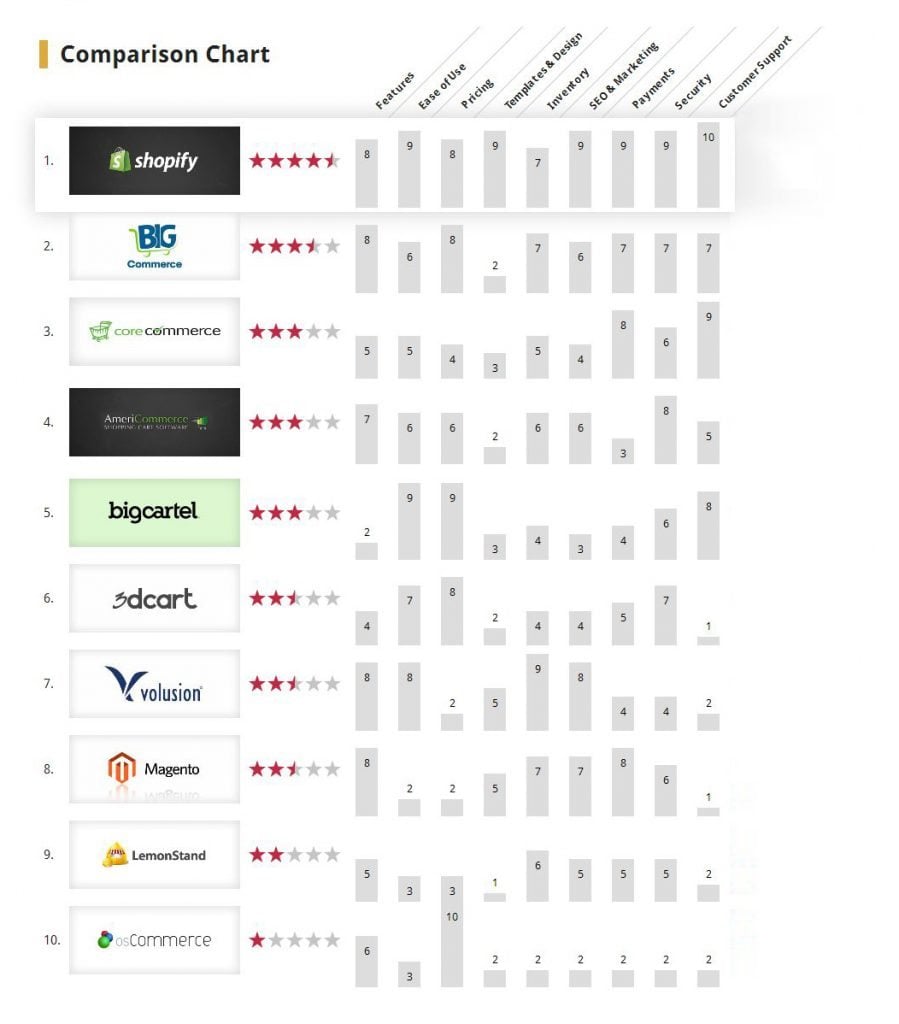Which eCommerce Products You’d Like to See in TemplateMonster’s Inventory? [Survey]
Due date we’ve already dedicated dozens of blog posts to eCommerce. One of the latest was a guide on how to build a store from a scratch.
Today we’d like to discuss one more really important aspect that’s eCommerce platforms. If you’re not really aware what those platforms are here comes the definition.
An eCommerce platform is a complete online store application that includes navigation, search, user accounts, shopping cart, and ordering capabilities. At the higher end, additional features like guided navigation, gift list/registry, customer segmentation, etc are included. The term platform refers to the complete software needed to run a site and could be built on proprietary or generally available toolsets like LAMP (Linux, Apache, MySQL, PHP), .NET, Java, etc.
Depending on the needs of the store owner there are dozens of platforms to choose from. Every eCommerce solution one can find on the market is created with a unique approach of its creator. As a result, there are so many solutions and they are so different and alike at the same time.

It was noted that Zen Cart lost nearly 2,000 sites and hit a 4th place among the most popular platforms. Some sites have switched to another platform, what as a result led to big changes. These changes are likely to be related to the appearance of these new websites in Top 1 million and vanishing from the old list.
This changes have brought VirtueMart to the second position in the Alexa Top 1 Million ranking even though VirtueMart rates declined from 3657 to 3324. This month the rates of Prestashop (+14%) and Opencart (+39%) have slightly increased.
***
We'd like to share with you a survey to find your preferences about eCommerce platform you need most. Further we are going to initiate production of eCommerce templates based on your tastes.
If you're feeling quite lost about that wide choice of eCommerce solutions take a look at these 5 questions, they will be really helpful when making a final decision:
- How much do you expect your sales to be?
- Are your products digital or physical?
- Do you need to integrate the ecommerce platform with other tools?
- What is your budget?
- How many SKUs do you have?
Now let’s have a closer look at 10 most popular platforms according to Alexa rating. Here is the table that outlines most essential aspects of every platform.
Shopify has been around for a while, but made a big splash last year when Tim Ferriss (of Four Hour Workweek fame) got involved and offered a $100,000 makeover type contest. They have very elegant storefronts with user-friendly tools so you can customize from scratch or buy a premium template. As a software-as-a-service platform (web-based), they promise to do just about everything except handle the money and ship your product.
BigCommerce is one of the leading eCommerce software solutions focused on the small business market. The software makes it easy to sell on eBay, Facebook, as well as from your iPhone or e-mail services like MailChimp. One of the things I like best about the company is its problem-solving approach. Right above the fold on the homepage is a box that reads: How Can We Help You. That proves their customer service philosophy of making it as easy as possible for the business owner.
CoreCommerce is a SaaS eCommerce platform that was created in 2008 out of Franklin, Tennessee. This shopping cart software powers over 13,000 online stores, and lets clients in almost 70 countries sell online. CoreCommerce is known for its good customer service and social media integration. CoreCommerce is not known for its SEO or stylish ecommerce template designs. They offer 5 different pricing plans between $19.99 per month, and $149.99 per month.
AmeriCommerce was founded in 2005 by three entrepreneurs. Their team has since grown to nearly 30 employees between their two offices in the US. AmeriCommerce has over 5,000 active online stores, including some of their showcase sites: My Princess Academy , Shop Inspired Living, and Dilettante Chocolates. AmeriCommerce is known for its multi-storefront option which lets merchants run multiple online stores all from one backend.
This ecommerce software is specifically designed for small businesses (less than 100 products) and hones its services accordingly. They have over 200,000 active online stores, most of which are artists, designers, bands, jewelry makers, and crafters. Big Cartel gets its huge number of clients because of its popular free plan that offers you a very bare-bones online store that’s easy to create and run. Big Cartel’s three paid plans range from $9.99 to $29.99 per month.
3dcart has over 15,000 online stores using their software. Online stores using 3dcart include, The New York Times Store, Candy.com, Lukie Games, and Ideal Baby & Kids are good examples of active online stores that are running on their platform. 3dcart is best known for its ease of use, fair prices, and awful customer service. They offer five different pricing plans appropriate for small businesses that range from $19.99 – $129.99 per month.
Volusion is probably the 800-pound gorilla, as the saying goes, in the eCommerce space. The company has been voted as one of the top places to work, which gives you an idea of how enthusiastic its employees are. The company understands that mobile commerce is huge and showcases that right on its homepage in addition to social commerce options.
Magento is the best open-source shopping cart script out there. It has advanced stats, customer groups management, tons of payment gateways, a nice admin interface, and much more… On the downside you could say that the theming learning curve is quite steep.
- LemondStand
LemondStand is an ecommerce web software application that was launched in 2010. At any rate, LemonStand really is quite good and I think it's a great Magento alternative. It’s worth a look.
Notable Features
- Supports unlimited products and categories
- Multicurrency support
- Support for physical (shippable) and virtual (downloadable) products
- Object oriented PHP backend
- Web Browser Install and Plugin support
Some thoughts to conclude
There are so many eCommerce solutions out there and so many features, sometimes wide choice can be a real problem, so you need to focus on most important aspects for every online store, here they come:
- Large product images
- Product reviews
- Layered navigation
- One-step checkout
- Full text search
- Coupons and discounts
- Ability to import and export products
- Integration with third-party services
- Analysis and reports of sales.
Get more to your email
Subscribe to our newsletter and access exclusive content and offers available only to MonsterPost subscribers.



Leave a Reply
You must be logged in to post a comment.